On Chappy, a balancing of the scales, a sharing of means, a neighborly act of camaraderie.
One morning this past fall at Chappy Point, I stood in rubber boots and work overalls in the back of a borrowed dump trailer. I watched as Chappy Ferry co-owner, Peter Wells, behind the wheel of a skid steer, expertly plowed into an enormous pile of fresh seaweed, lifting out a bucketful of the heavy, wet strands. He then pivoted the agile machine, and delivered the load to my waiting trailer where I kicked and tamped, spreading the seaweed evenly across the bed as he turned for another haul.
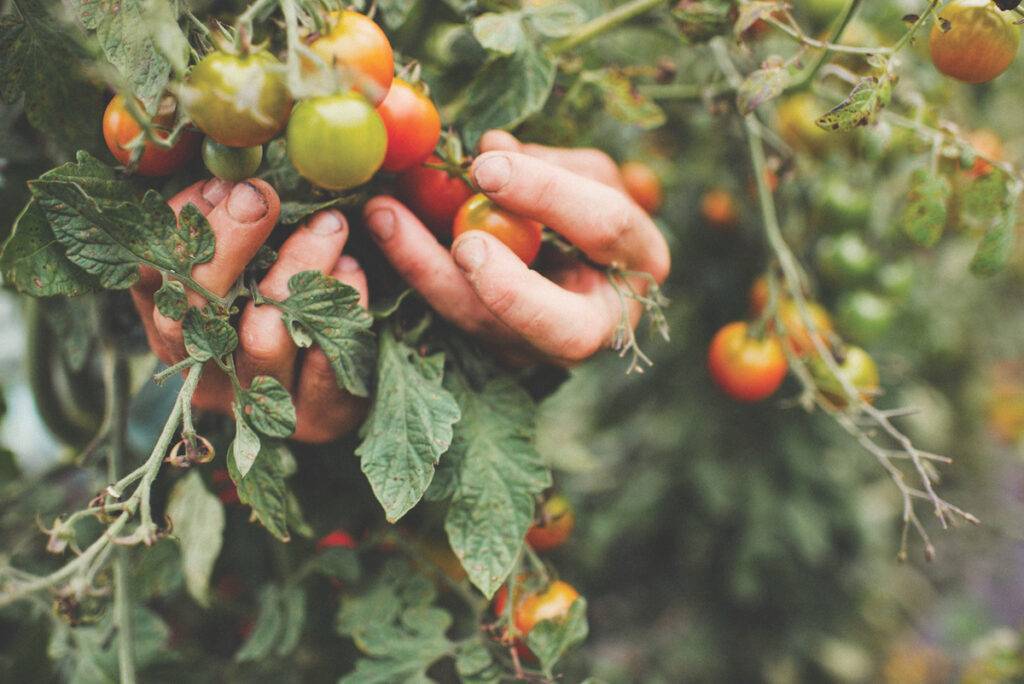
The day before, the Island was hit with a Nor’easter that left Chappaquiddick and other parts of Martha’s VIneyard without power for two days and deposited yards and yards of fresh seaweed across the Chappy Point parking lot. Now it all needed a new home.
I used this seaweed, rich in micronutrients, to form the foundation of a new compost heap at Slip Away, my vegetable and flower farm on Chappy. Over the next few months, landscaping companies, grateful to avoid additional ferry and dump fees, will add leaves, grass clippings, and pine needles to the growing pile.
In trade, come next fall, they will return with dump trucks and a front end loader, much larger than any of our own equipment, to help us move the finished material out to our production fields. The dump trucks are too large for our narrow, trail-like access road, so we will ask our neighbor for permission to cut across his property. In exchange, we will bring him a load or two of compost to feed his own garden.
Because of the two ferries that separate us from the mainland, we cannot affordably ship in compost from elsewhere, but must instead produce all that we use. This reduces our carbon footprint and keeps our fertility plan hyperlocal. But this critical process requires assistance from many in our community: Peter and his skid steer, my friend’s dump trailer and truck, the landscaper’s inputs and machinery, the neighbors permission for drive-in access.
Although no money has been exchanged, no capital lost or gained, many who help us will also benefit, either now or in the future.
We call this informal trade Island barter. With limited resources, inflated service fees associated with living in a seasonal, tourist-driven economy, and a desire to keep things local, we rely on each other for equipment or skills, childcare, and food.
I am neither a hunter nor a fisherman. I know nothing of harvesting food from the woods or pulling catch from the sea. I know farmland: long rows of crops stretching out in front of me in a flat, open field. Because of my profession, vegetables dominate my dinner table, substituted with meat from other Island farms or occasionally the grocery store. But over the years, I have been fortunate to cultivate barter relationships with Chappy neighbors. My dinner table frequently features Island protein harvested by others.
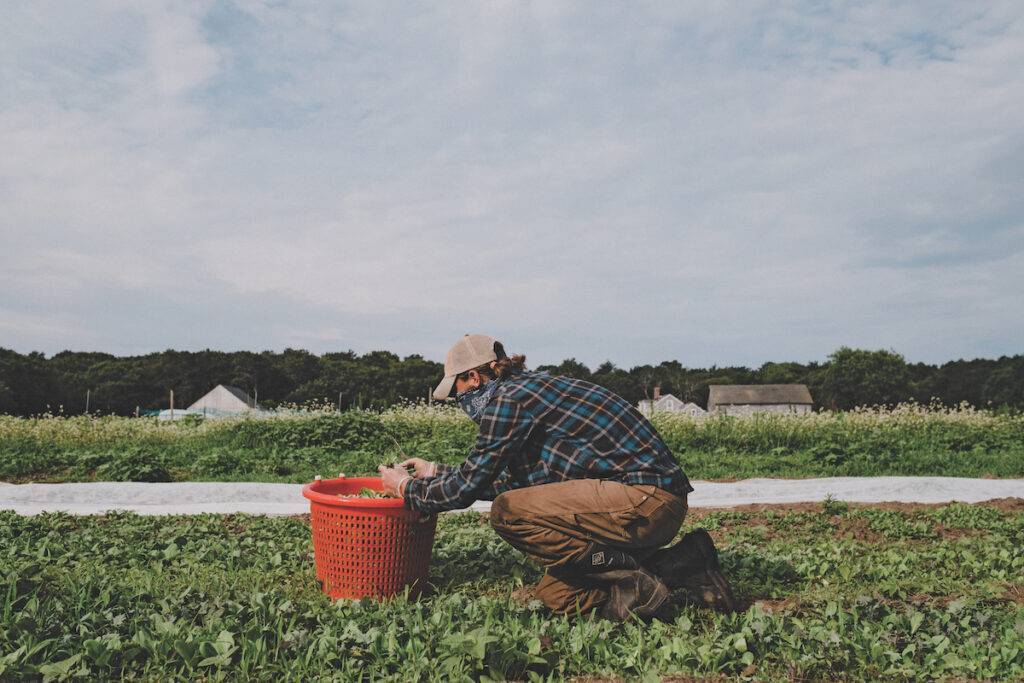
Years ago, our then-mailman, an avid hunter and fisherman, occasionally delivered a big striped bass or a bluefish along with our daily mail. In the fall, he spends many hours up in a tree stand, hunting deer, first with a bow and then, as the season progresses, a shotgun. Some years, at Christmastime, we return home to find a bag of fresh venison hanging on our front door. In those winters, sausages, ground venison, and the coveted back strap make their way to our kitchen table.
Another acquaintance visits Chappy twice a year, once in the late spring and again in the fall. He spends his time on-Island fishing and clamming, absorbing all the Chappy shores have to offer. Once or twice on his visits here, he drops by the farm, pops open his tailgate and pulls out bluefish caught an hour or two earlier. For dinner on those nights, we stuff a few lemons inside the fish and toss the whole fish on a hot grill. We serve it on a wooden cutting board, each pulling off chunks of the briny meat, avoiding the delicate bones.
In exchange, I offer these two individuals what I can, depending on the season. In spring, it may be salad greens, radishes, or pea shoots to go with the fresh catch. In summer, a few pounds of tomatoes, a pint or two of fairytale eggplant, or a handful of shishito peppers to cook on the grill. Come late fall, a newly harvested deer might hang for several days in our walk-in cooler.
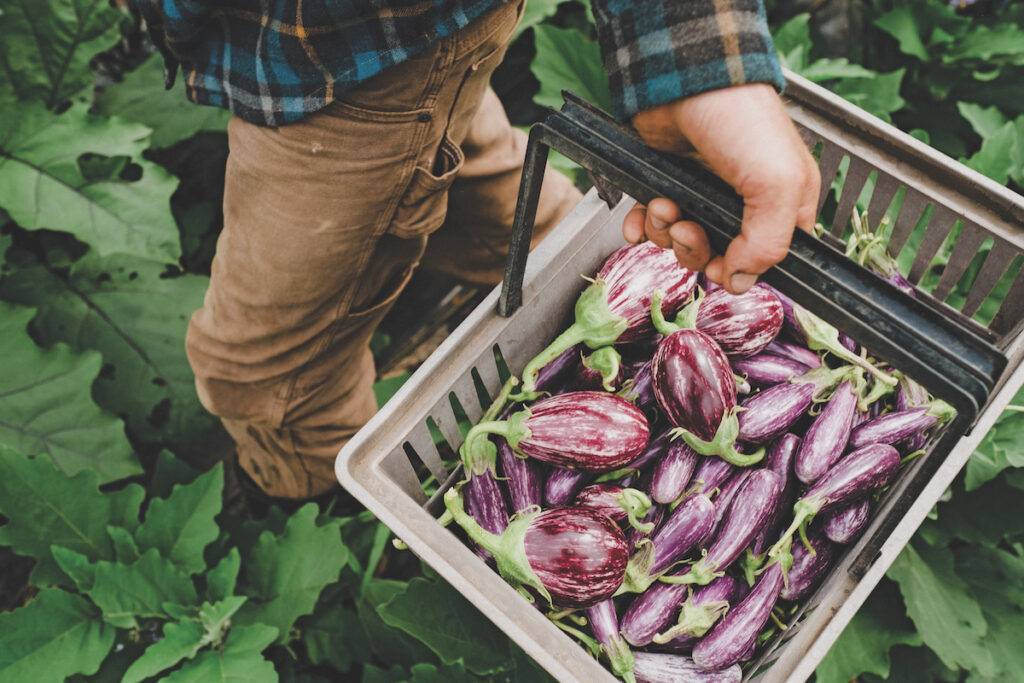
My favorite barters are around food. I love that I can have an entirely Chappy dinner, one in which I was responsible for only a few of the components. I imagine the hunter or fisherman sitting down to a similar meal, experiencing a similar joy. We are eating in a way that feels right. Resources were shared, dinners were made, people were fed, all from within a few square miles.
Frequently, Island barters revolve around skills or trades. We live in a place where finding an available tradesman, particularly during a building boom or in the summer months, can be challenging if not impossible. Plumbers, electricians, and carpenters are in high demand and, if secured, expensive. For many islanders, bartering helps level the playing field. There is the electrician who recently wired an infrared sauna in exchange for a lamb. The carpenter who renovated a kitchen to offset the purchase of a dream vacation condominium. And the plumber who exchanged his work for a cavalry sword used in World War I.
Sometimes, Island barter involves less tangible trades or an item may be given without any expectation of a near-term return. When I first began the farm, I often felt like we could not reciprocate for many of the gifts that came our way.
We had neighbors bringing perennial plants for our herb garden and lending a hand when we skinned our first hoophouse. Friends loaned us equipment, plowed our first fields, let us borrow dump trucks and flatbeds, sponsored our first bee hives, installed a new well, graded our driveway. We received a grant to purchase a new tractor, but before we did so, a neighbor offered us his big John Deere for free, allowing us to direct the funds towards other needed infrastructure purchases.
These friends and neighbors wanted to see us thrive. They wanted to encourage small-scale agriculture and enable us, a small group of young farmers, the chance to make a living here.
What I have come to learn with time is that none of these things were given with the expectation of a physical return; instead, the trade was the success of the farm. These friends and neighbors wanted to see us thrive. They wanted to encourage small-scale agriculture and enable us, a small group of young farmers, the chance to make a living here. They hoped to one day avoid a ferry line across to the other side and instead find dinner in our farmstand, perhaps greeting a neighbor while selecting their salad greens or bouquet.
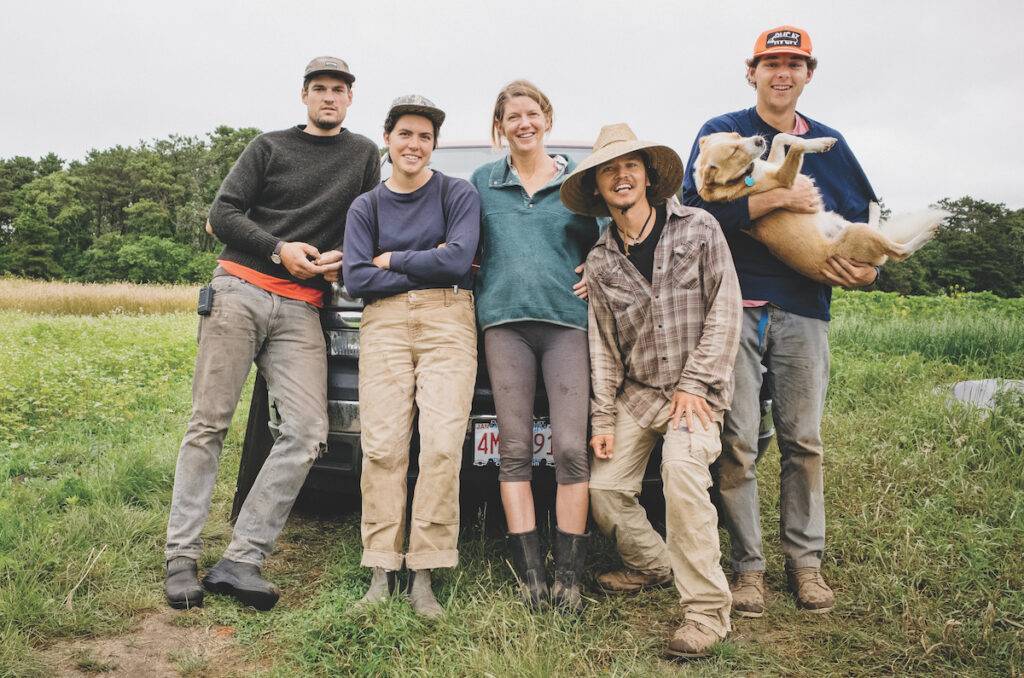
I hope that those who gave to us in the early days now feel that their barter has been met, but it also feels good to have something more tangible to offer in trade: a truck or tractor, flowers or vegetables.
The beauty of barter is that there is no metric. A bluefish, in dollar value, may or may not be equivalent to a dozen eggs offered in trade. How do you measure the worth of a successful small farm or the lifetime care of a trusted carpenter? Is a freezer stocked with lamb comparable to a wired sauna? It may be impossible to assign a price to all that is offered in trade. Yet, if each recipient feels the worth of their half is met, suddenly both parties stand on equal footing. It is a balancing of the scales, a sharing of means, a neighborly act of camaraderie. One for the other, returning.
Lily Walter is the owner of Slip Away Farm on Chappaquiddick.
What You Can Do
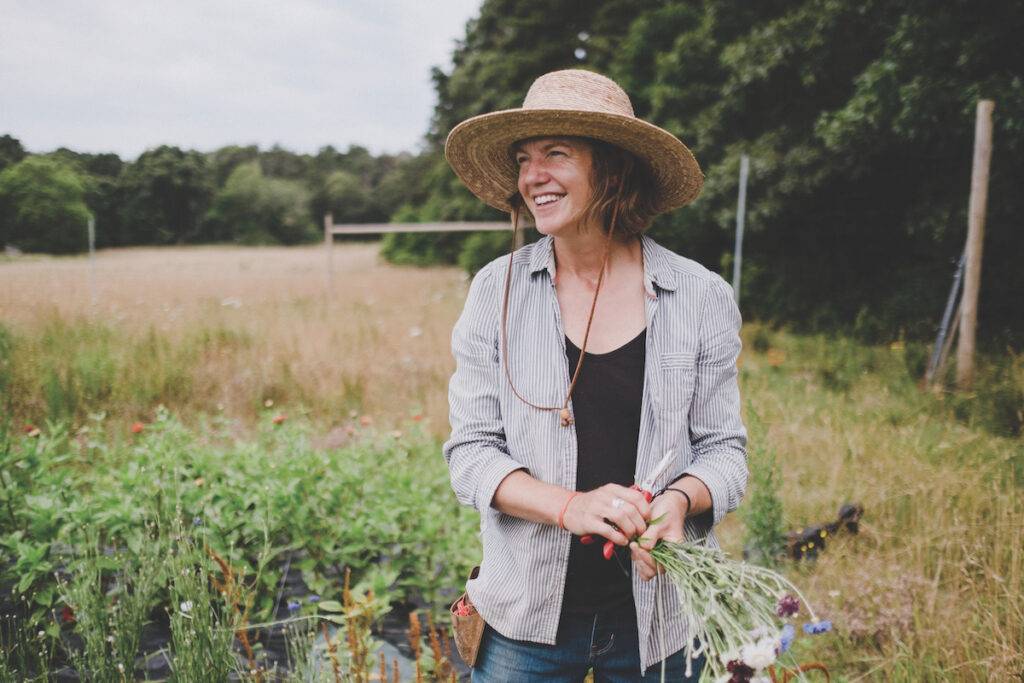
- Find existing groups for sharing, such as the MV Plant Trading Facebook page, where you can trade for shrubs, flowers, and houseplants.
- Create a Facebook group — you can make it private, invitation-only among those you trust — and share lawn mowers and power tools, or childcare and errands.
- Chat with like-minded neighbors and establish something informal, though you’ll want to be sure to create some structure so that borrowed items don’t languish in someone’s garage, or there’s an agreed-upon approach if something breaks when in use.
- Be a good neighbor and always return items in good condition.

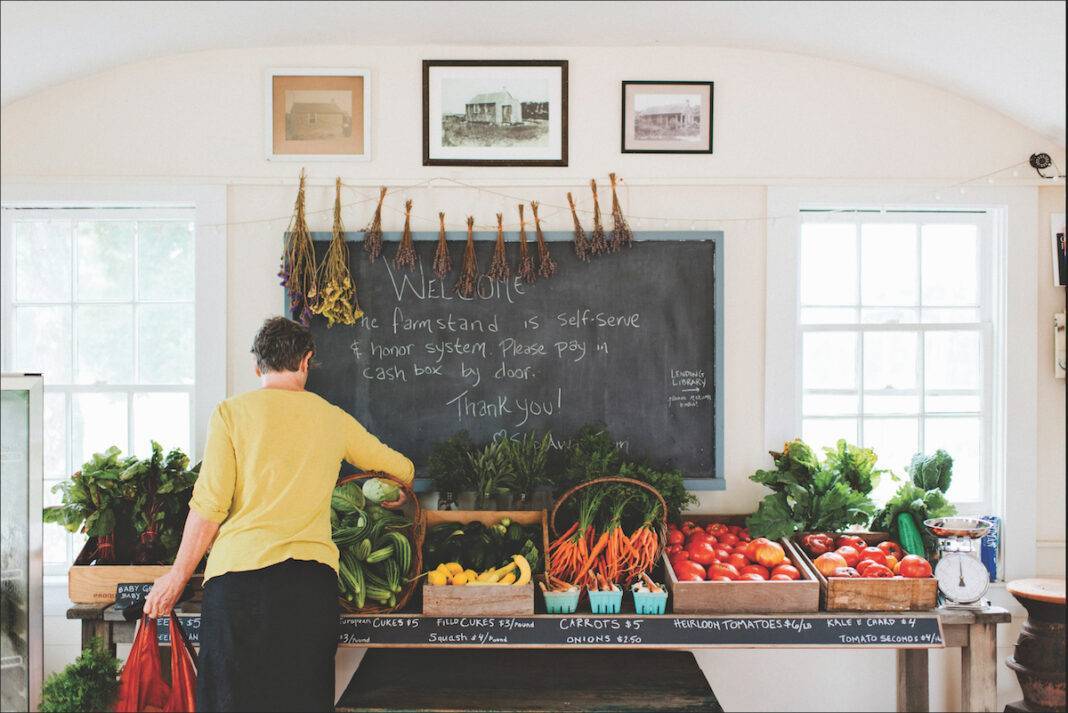
I love this process with all my heart and wish our world worked together like this more often.